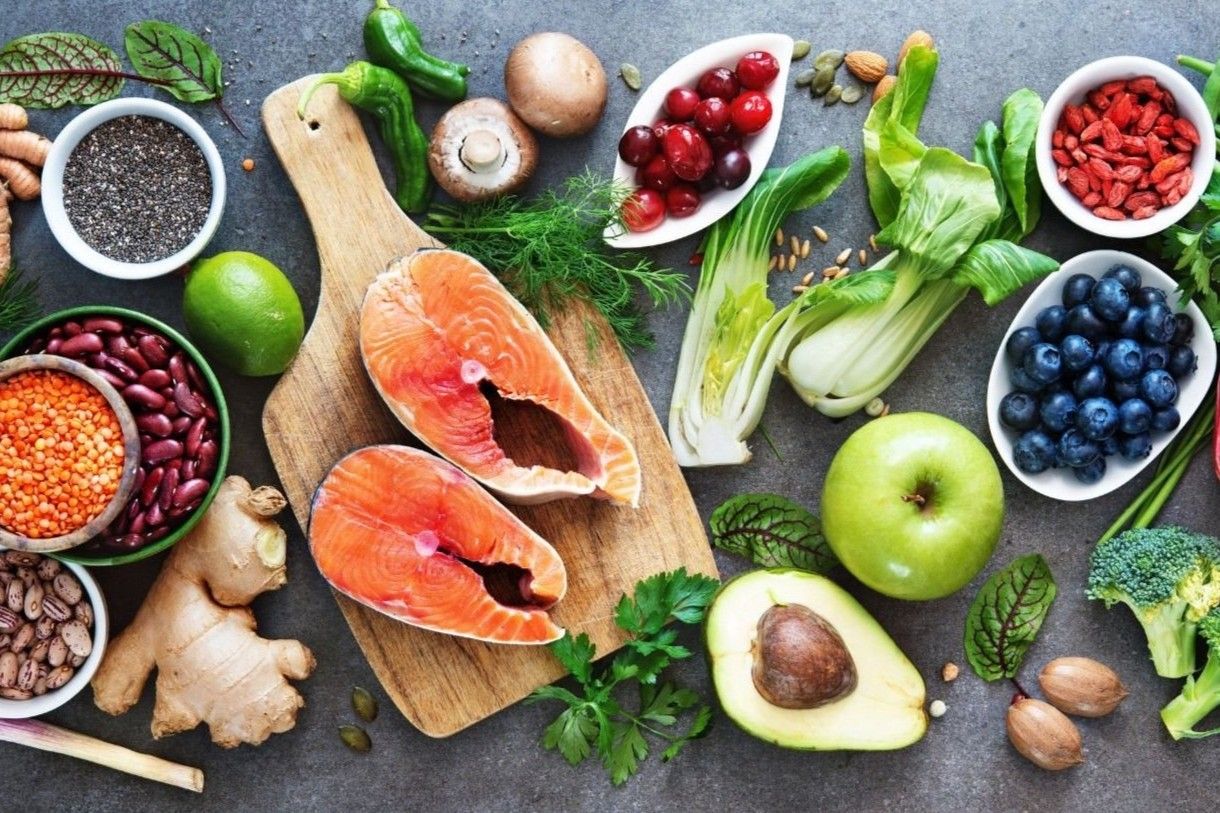
Goitrogens are naturally occurring substances found in various foods that can interfere with thyroid function. Ever wondered how these compounds impact your health? Goitrogens can be found in everyday foods like broccoli, cauliflower, and soy products. While they might sound scary, understanding their effects can help you make informed dietary choices. Some people need to be cautious, especially those with thyroid issues. But don't worry, not all goitrogens are created equal. Cooking methods and portion sizes can significantly reduce their impact. Ready to learn more? Let's dive into 26 fascinating facts about goitrogens and how they affect your body.
What Are Goitrogens?
Goitrogens are substances that can interfere with thyroid function. They can be found in certain foods and environmental chemicals. Understanding goitrogens is important for maintaining a healthy thyroid.
-
Goitrogens can inhibit iodine uptake. Iodine is crucial for thyroid hormone production. Without enough iodine, the thyroid gland can't function properly.
-
They are found in cruciferous vegetables. Foods like broccoli, cauliflower, and Brussels sprouts contain goitrogens. Cooking these vegetables can reduce their goitrogenic effects.
-
Soy products contain goitrogens. Tofu, soy milk, and other soy-based foods have goitrogens. Moderation is key for those with thyroid issues.
-
Certain fruits have goitrogens. Strawberries, peaches, and pears contain small amounts of goitrogens. Eating these fruits in moderation is generally safe.
-
Goitrogens are also in some grains. Millet and sorghum are examples of grains that contain goitrogens. These grains are less common in Western diets.
How Goitrogens Affect the Thyroid
The thyroid gland plays a vital role in regulating metabolism. Goitrogens can disrupt this process, leading to various health issues.
-
They can cause goiter. A goiter is an enlarged thyroid gland. This condition can result from prolonged exposure to goitrogens.
-
Hypothyroidism can develop. Low thyroid hormone levels characterize hypothyroidism. Symptoms include fatigue, weight gain, and depression.
-
They can affect thyroid medication. People taking thyroid hormone replacement should be cautious with goitrogenic foods. These foods can interfere with medication absorption.
-
Pregnant women should be cautious. Goitrogens can affect fetal development. Pregnant women should consult their doctor about their diet.
-
Cooking methods matter. Boiling or steaming goitrogenic foods can reduce their impact. Raw consumption poses a higher risk.
Foods High in Goitrogens
Knowing which foods are high in goitrogens can help manage their intake. Here are some common goitrogenic foods.
-
Kale is a goitrogenic vegetable. Despite its health benefits, kale contains goitrogens. Cooking it can lessen its goitrogenic properties.
-
Bok choy contains goitrogens. This leafy green is popular in Asian cuisine. Cooking it can reduce its goitrogenic effects.
-
Turnips are goitrogenic. These root vegetables contain goitrogens. They are often cooked, which helps mitigate their impact.
-
Mustard greens have goitrogens. These greens are nutritious but contain goitrogens. Cooking them can reduce their goitrogenic content.
-
Cassava is a goitrogenic root. This starchy root is a staple in many tropical countries. Proper preparation is essential to reduce its goitrogenic effects.
Environmental Sources of Goitrogens
Goitrogens are not only found in food. Environmental sources can also contribute to thyroid disruption.
-
Pesticides can contain goitrogens. Some pesticides have goitrogenic properties. Washing fruits and vegetables can help reduce exposure.
-
Industrial chemicals can be goitrogenic. Chemicals like perchlorate can disrupt thyroid function. These chemicals are found in contaminated water and soil.
-
Fluoride in water can be goitrogenic. High levels of fluoride can affect the thyroid. Using a water filter can help reduce fluoride intake.
-
Plastic containers can leach goitrogens. Certain plastics release chemicals that act as goitrogens. Using glass or stainless steel containers is a safer option.
-
Air pollution contains goitrogens. Pollutants like dioxins can disrupt thyroid function. Reducing exposure to polluted air can benefit thyroid health.
Managing Goitrogen Intake
Balancing goitrogen intake is crucial for thyroid health. Here are some tips for managing goitrogen consumption.
-
Diversify your diet. Eating a variety of foods can help balance goitrogen intake. This approach ensures you get essential nutrients without overloading on goitrogens.
-
Cook goitrogenic foods. Cooking methods like boiling and steaming can reduce goitrogen content. This makes these foods safer for thyroid health.
-
Monitor portion sizes. Eating goitrogenic foods in moderation can minimize their impact. Large portions can increase the risk of thyroid disruption.
-
Consult a healthcare provider. If you have thyroid issues, talk to your doctor. They can provide personalized advice on managing goitrogen intake.
-
Consider iodine supplements. Iodine can counteract goitrogens. However, consult a healthcare provider before starting any supplement.
-
Stay informed. Research on goitrogens is ongoing. Staying updated can help you make informed dietary choices.
Final Thoughts on Goitrogens
Goitrogens, found in foods like broccoli, cauliflower, and soy, can impact thyroid function by interfering with iodine uptake. While they can be a concern for those with thyroid issues, most people can safely enjoy these foods as part of a balanced diet. Cooking goitrogenic vegetables reduces their goitrogen content, making them less likely to affect your thyroid. Moderation is key. If you have thyroid problems, consult your doctor before making dietary changes. Remember, these foods also offer numerous health benefits, including vitamins, minerals, and antioxidants. So, don't shy away from them completely. Just be mindful of your intake and how you prepare them. Understanding goitrogens helps you make informed choices about your diet and overall health. Stay curious, stay informed, and keep enjoying a variety of nutritious foods.
Was this page helpful?
Our commitment to delivering trustworthy and engaging content is at the heart of what we do. Each fact on our site is contributed by real users like you, bringing a wealth of diverse insights and information. To ensure the highest standards of accuracy and reliability, our dedicated editors meticulously review each submission. This process guarantees that the facts we share are not only fascinating but also credible. Trust in our commitment to quality and authenticity as you explore and learn with us.
